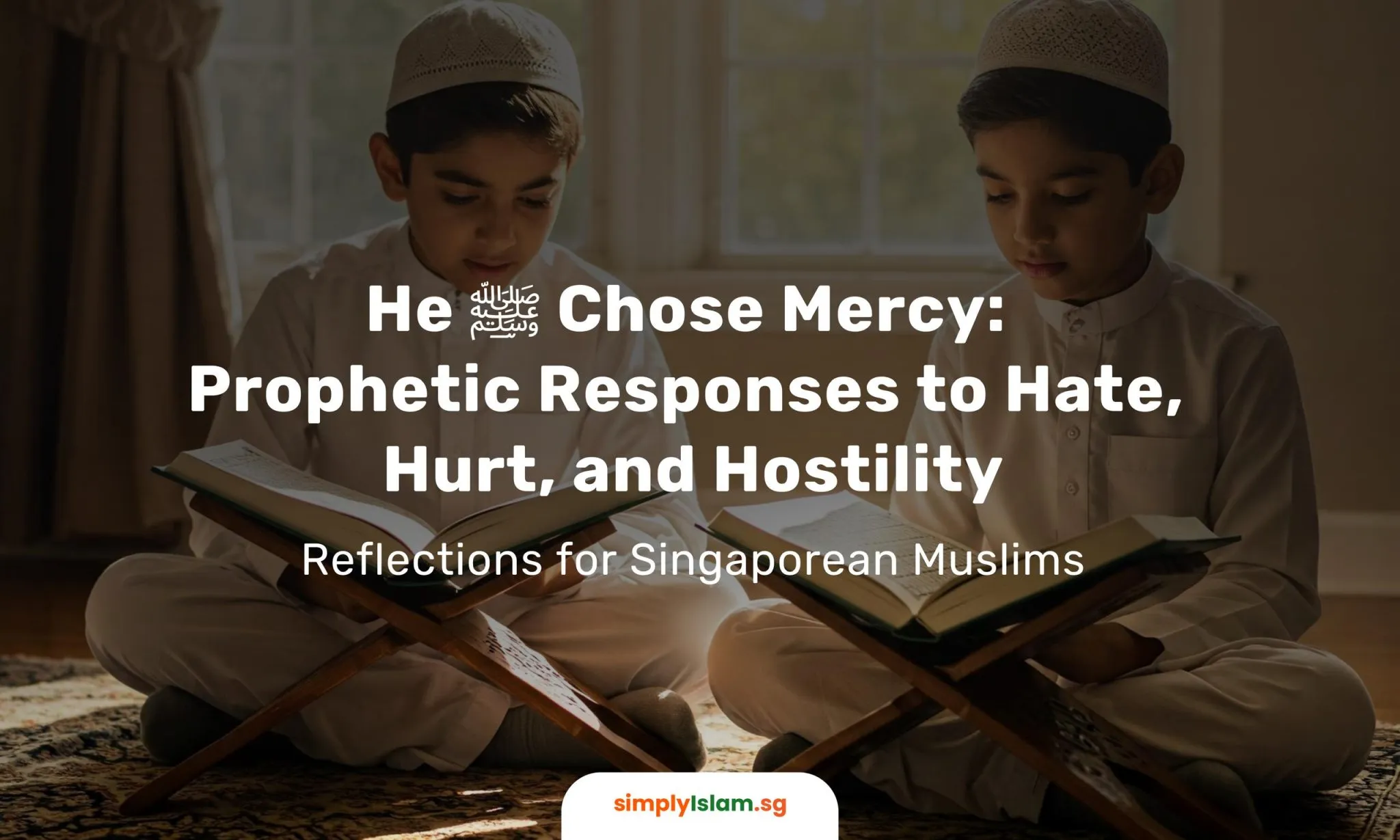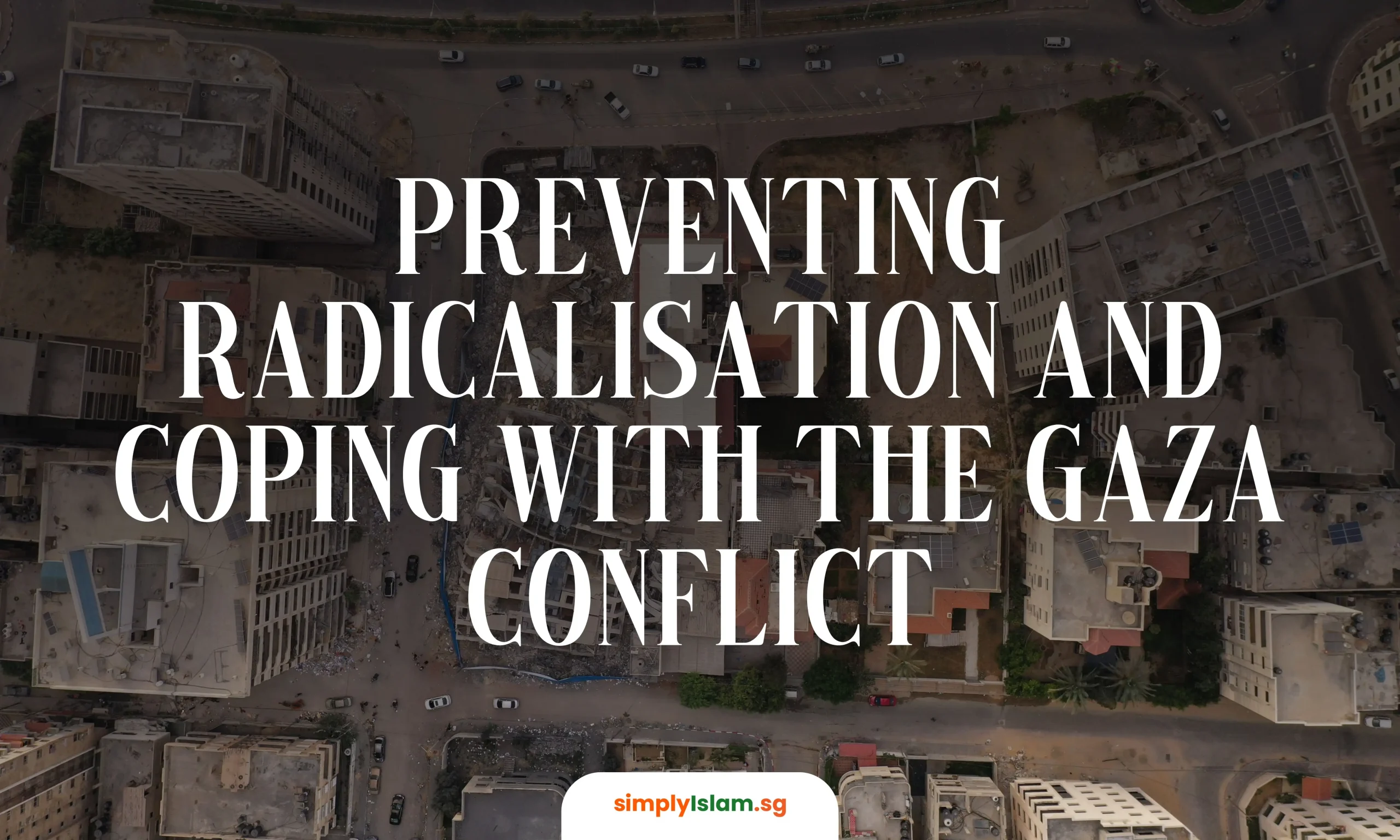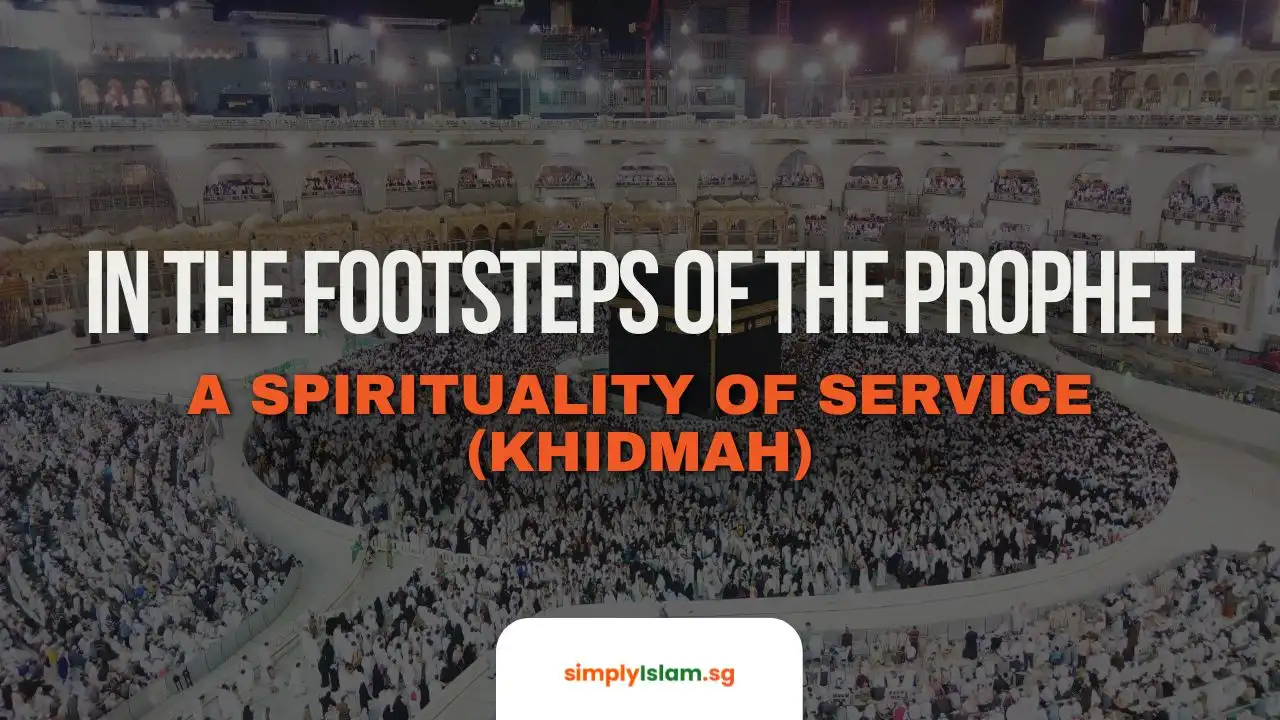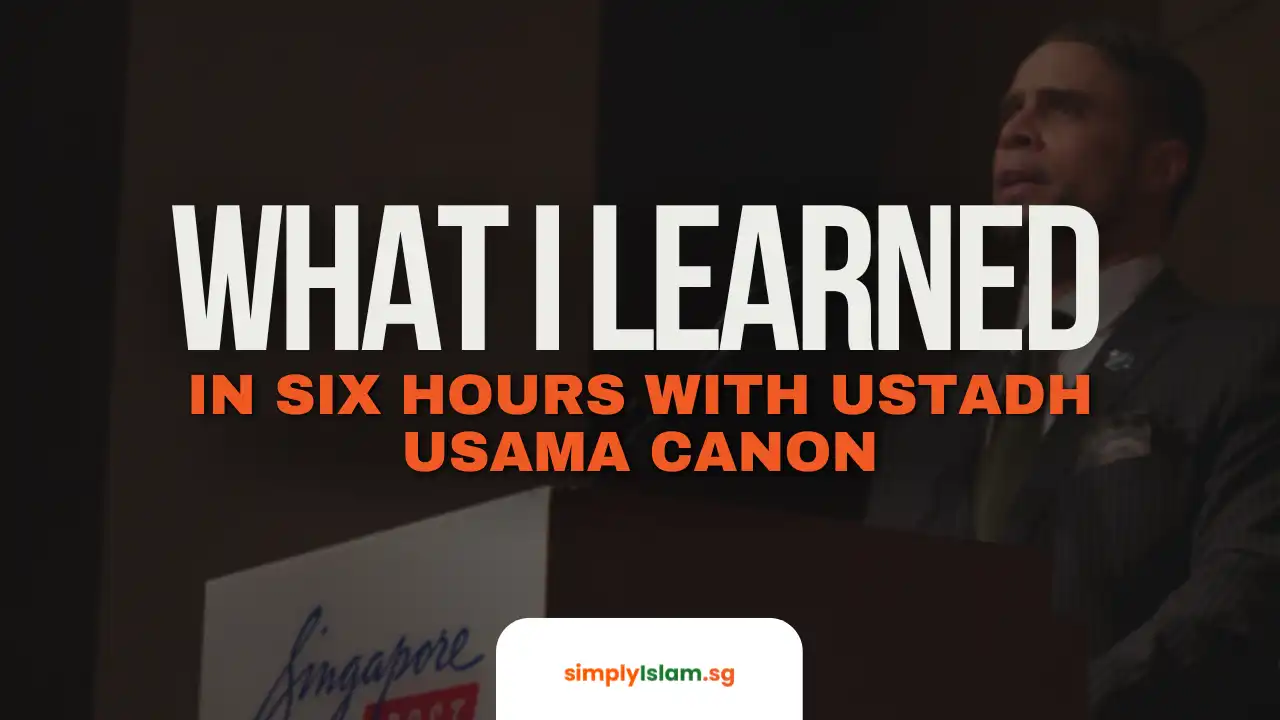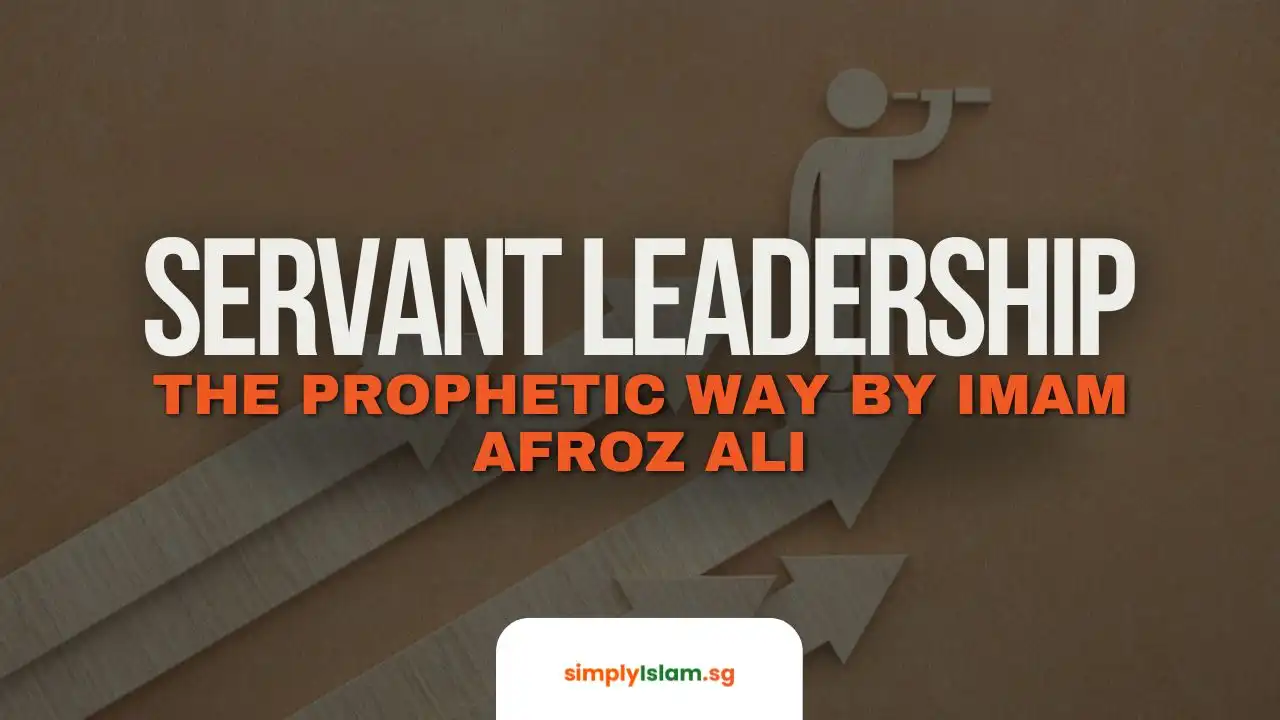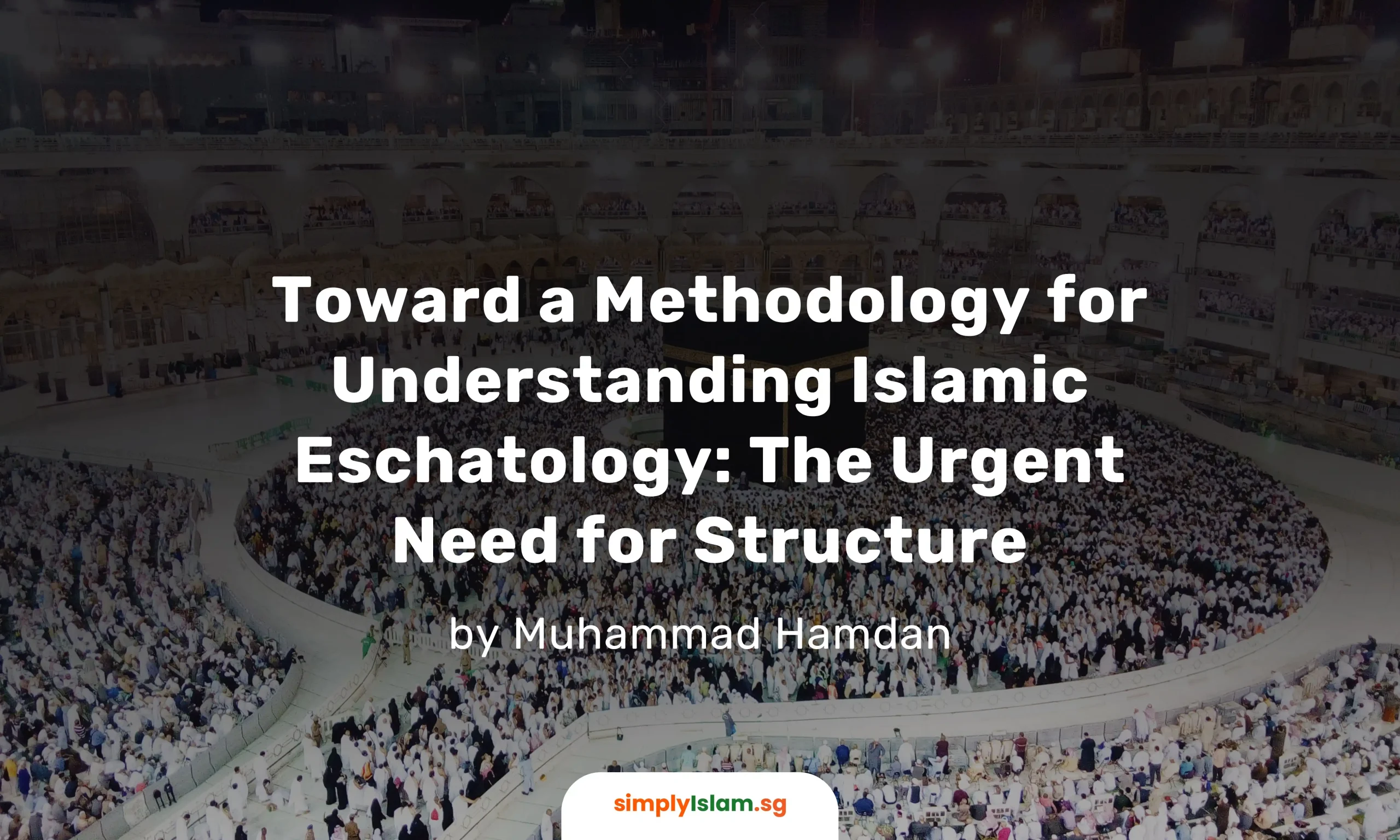
William Bradley and “Maktub”: The Philosophy of Fate and Destiny in Facing Life
He ﷺ Chose Mercy: Prophetic Responses to Hate, Hurt, and Hostility
Reflections for Singaporean Muslims
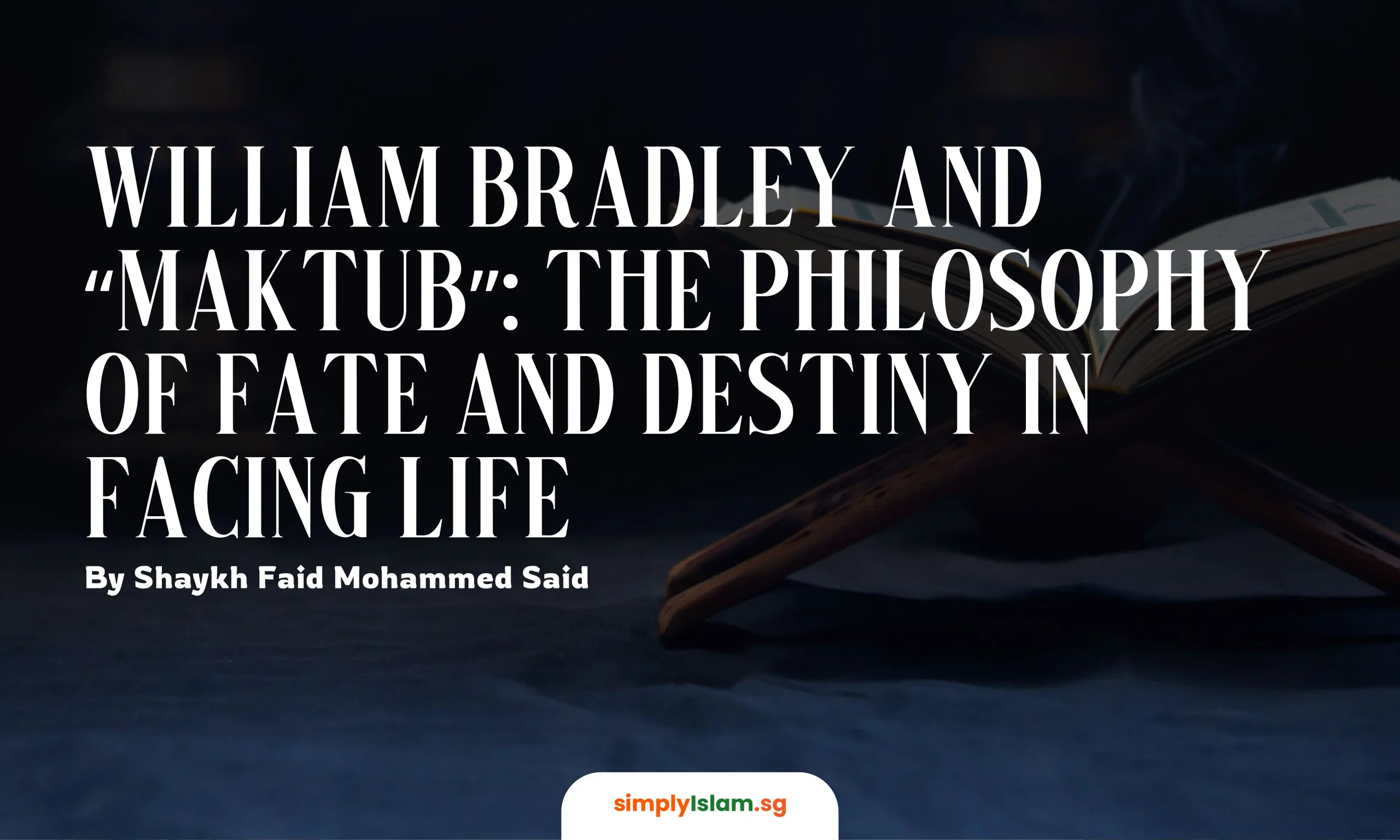
Author: Shaykh Faid Mohammed Said
Introduction
Belief in fate and destiny is a fundamental tenet of Islamic faith. It is a belief that combines submission to God’s will and taking the necessary means. This belief has been evident in the lives of Muslims throughout history, serving as a source of patience and steadfastness in the face of trials. Among the travelers who observed this deep aspect of faith is William Bradley, the British officer who visited the Moroccan desert after World War II and wrote about its inhabitants in his book Shadows of the Desert.
Bradley was struck by the word “Maktub,” which the desert dwellers often repeated, considering it not just a word, but an expression of a faith-based philosophy that made them more patient and resilient despite the harshness of their circumstances. This concept provides us today with an invaluable lesson in confronting the complex crises of the modern age that affect human mental health.
“Maktub”: The Philosophy of Fate and Destiny in Islam
“Maktub” is a word rooted in the belief in fate and destiny, meaning that everything that happens in life is by God’s decree and eternal knowledge. Allah says:
“Indeed, We have created everything with decreed destiny.” [Al-Qamar: 49]
This belief represents a source of psychological and philosophical comfort, as it helps individuals understand that everything they experience is part of divine wisdom, whether it is good or bad.
The Prophet Muhammad (ﷺ) said:
“Know that what has befallen you was never meant to miss you, and what missed you was never meant to befall you.” [Narrated by Ahmad]
William Bradley and the Testimony of “Maktub” in the Moroccan Desert
In his book Shadows of the Desert, Bradley wrote about his life with the Moroccan desert dwellers after the World War. He observed their remarkable ability to endure despite their poverty and harsh environment, and he saw that they lived according to the philosophy of “Maktub.” Bradley says:
“The word ‘Maktub’ is not merely a justification for their fate; it is a psychological force that enabled them to endure what we would have considered impossible.”
He was astonished by how the desert dwellers, despite the hardships, never lost their calm or complained. Instead, they faced life’s difficulties with trust in God’s wisdom, believing that whatever happens is destined and written.
He further describes:
“While we trembled in fear of tomorrow and thought about everything that could befall us, they walked calmly, as if they knew that whatever was written for them would inevitably come.”
The Philosophical Dimension of “Maktub” and Its Effect on Mental Health
In the modern world, individuals often suffer from stress and anxiety due to uncertainty about the future and the abundance of challenges. Here, belief in destiny emerges as a philosophical and psychological solution to address these crises:
- Liberation from Anxiety:
Anxiety about the future is one of the most prominent issues of the contemporary age. Belief in “Maktub” frees the individual from this anxiety, as what Allah has decreed will inevitably happen. Allah says:
“Say, ‘Nothing will strike us except what Allah has decreed for us; He is our protector.’ And upon Allah let the believers rely.” [At-Tawbah: 51]
This certainty calms the soul and provides comfort in the face of the unknown.
- Patience in Adversity:
Belief in fate and destiny teaches a person how to be patient and endure in times of hardship. Allah says:
“And give good tidings to the patient, who, when disaster strikes them, say, ‘Indeed, we belong to Allah, and indeed to Him we will return.’” [Al-Baqarah: 155-156]
Through the word “Maktub,” Bradley found that the desert dwellers were able to coexist with difficulties without their trust wavering.
- Balance Between Effort and Submission:
Belief in destiny provides a balance between striving and contentment. A person works to achieve their goals, knowing that the outcomes are in God’s hands. The Prophet Muhammad (ﷺ) said:
“Strive for what benefits you, seek help from Allah, and do not be weak.” [Narrated by Muslim]
This balance protects the individual from surrendering or overindulging in anxiety.
“Maktub” in Confronting Modern Crises: Loneliness and Psychological Fragmentation
In today’s age, loneliness and psychological isolation are problems threatening contemporary humanity. Technology and globalization have increased human isolation, and life has become filled with complexities that drain one’s psychological energy.
- Treating Loneliness:
Belief in “Maktub” restores a person’s connection with God, providing a sense of peace and companionship, freeing them from the destructive feelings of loneliness. Allah says:
“And those who believe and whose hearts are assured by the remembrance of Allah. Unquestionably, by the remembrance of Allah hearts are assured.” [At-Taghabun: 11]
- Facing Psychological Crises:
Many suffer from anxiety and depression due to economic and social pressures. Belief in fate and destiny alleviates these pressures, as the individual realizes that their provision and life span are decreed. The Prophet Muhammad (ﷺ) said:
“Indeed, Allah decreed the destinies of all creatures fifty thousand years before He created the heavens and the earth.” [Narrated by Muslim]
This belief restores psychological balance and grants the individual the strength of patience and contentment.
Islamic History: Faith-Based Experiences Through Time
Throughout Islamic history, belief in fate and destiny has been a source of spiritual and psychological strength:
- In the Battle of Badr, despite the small number of Muslims, Allah granted them victory because they believed in His decree.
- During plagues such as the Plague of Amwas, the companions faced the disease with patience and faith, convinced that whatever Allah had written for them would happen.
Historically, belief in fate has been a motivation for action and hope, never a cause for surrender or passivity.
Conclusion
William Bradley’s testimony regarding the word “Maktub” in the Moroccan desert is not merely a fleeting observation but a confirmation of the power of belief in fate and destiny as a psychological and philosophical system. In an age where psychological pressures and issues of loneliness and fragmentation are increasing, belief in “Maktub” remains a refuge that brings internal balance and grants the individual peace and assurance.
The word “Maktub” is not just a phrase Muslims repeat but a way of life that protects them from the anxiety of the future, helps them practice patience and contentment, and makes them stronger and more resilient in facing life’s challenges.
Shaykh Faid Mohammed Said is the General Secretary of the Fatwa and Islamic Affairs commission and Imam and Khateeb of the Central Mosque in London.
Original Article: https://www.makkahnews.sa/5440140.html

